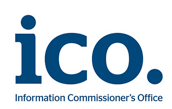International tracing agents and investigations
Trace Anyone have a totally unique cost effective method to Trace Property Ownership that may have gone undetected and not submitted. Searching for property ownership and tracing assets within the UK can be problematic, but at Trace Anyone we have developed a property search system that enables us to reverse search all properties within the UK and trace the registered owners of the address.
Property ownership may be one of a debtors major assets, so you consequently secure your debt via a charging order
All investigations are fully documented, this would include homeowner details, charges against the property and an estimate of the value.

Property Tracing Agents
Unfortunately the Land Registry does not have a feature whereby the consumer can input “Mr Smith’s” details and you would receive a list of properties owned by ” Mr Smith”.
Trace Anyone can establish the full list of properties owned by “Mr Smith” and then we can subsequently order the documentation from the Land Registry as proof of ownership.
Our highly experienced property tracing agents and investigators successfully locate properties within the entire U, sometimes with minimal information, we are happy to assist in the more difficult cases where other investigators or tracing agencies may be unable or unwilling to help due to the amount of time involved in locating the properties
We have an outstanding track record for tracing and locating properties so please call us for a free consultation.
All property searches are conducted in accordance with all relevant UK and European legislation.
Locate UK Property Ownership Details
Property tracing is a crucial process in asset searches, primarily aimed at identifying and confirming property ownership. This practice is widely utilized by financial institutions, legal professionals, and private investigators to uncover assets that individuals may have hidden or neglected to disclose. Through meticulous tracing, both residential and commercial properties can be identified, offering clarity in cases involving debt recovery, inheritance disputes, or legal claims.
One of the main reasons property tracing is conducted is to facilitate debt recovery. When individuals or businesses owe substantial debts, creditors often employ property tracing to locate valuable assets that can be liquidated or seized to settle outstanding obligations. By identifying properties registered under the debtor’s name or linked entities, creditors can strengthen their legal recourse and improve the likelihood of debt resolution.
Inheritance and probate cases are another significant area where property tracing is indispensable. Executors and solicitors handling estates often need to verify all assets, including real estate, to ensure that beneficiaries receive their rightful inheritance. Property tracing helps confirm property ownership, identify missing assets, and even locate heirs who might otherwise remain unknown, simplifying the often-complex probate process.
In divorce and family law, property tracing ensures fair asset division by uncovering all properties owned by both parties. Hidden assets can lead to unfair settlements, so tracing services are employed to provide a full picture of property holdings. This transparency is crucial for equitable settlements involving property division, alimony, or child support arrangements, preventing any party from unfairly benefitting through concealment.
Fraud detection is another critical application. Individuals may attempt to commit fraud by misrepresenting their property holdings in financial or insurance claims. Property tracing helps investigators verify claims, identify inconsistencies, and expose attempts to hide or falsely report property ownership, thereby preventing financial losses and maintaining the integrity of legal and insurance processes.
For companies and legal teams, property tracing can be essential in corporate investigations. Understanding the property portfolios of businesses or their executives is often necessary to assess financial health, uncover conflicts of interest, or prepare for mergers and acquisitions. Detailed asset searches reveal the scope of property holdings and ensure that any potential risks are identified early.
Moreover, property tracing plays a vital role in criminal investigations where assets acquired through illegal activities are concerned. Law enforcement agencies trace properties to uncover money laundering, tax evasion, or corruption schemes. By tracing properties, investigators can link individuals to criminal networks and initiate asset forfeiture proceedings, deterring further financial crimes.
Finally, international asset recovery is another area where property tracing is pivotal. In a globalised world, individuals often invest in properties abroad to shield assets from local jurisdictions. By conducting cross-border property tracing, investigators can locate overseas assets, supporting litigation and recovery efforts in multi-jurisdictional legal battles, ensuring that rightful claims are honoured globally.


